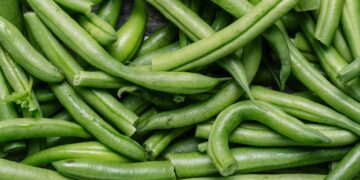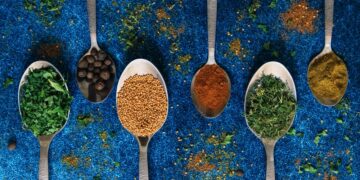We all have a habit of stuffing our fridge with all the leftovers and every fruit and vegetable we buy. Chances are that there are some shelf hoggers which shouldn’t be there. Not just that, there are some foods which when kept in the refrigerator tends to rot easily and might stay alright when kept at room temperature. If you store food correctly, it might reduce food wastage and give your fridge some breathing space as well. If your fridge is always stocked up, then make sure you don’t keep these foods in your refrigerator.
1. Bread
When you keep bread in the refrigerator, it goes stale much more quickly and bread dried up as well. Try storing it in a cool and dry place. A bread bin, pantry or bread bags would be a good start.
2. Melons
Melons of any kind should not be kept in the fridge. Instead, they should be kept on the countertop to retain the flavour – but only before you cut it. Once you’ve cut into the melon, wrap it in cling film and put it in the fridge. When certain foods are kept at room temperature, they might have more antioxidants in them.
3. Bananas
Bananas need room temperature for two reasons; the warm temperatures help the fruit finish ripening (in case you pick up any still-green pieces) and the light and air slow down decay. Bananas hail from tropical climates and their cells have no natural defence against the cold. If they’re green and you refrigerate them straight away, they won’t ripen at all. Instead, they’ll turn mushy and black as their enzymes break down nutrients. Apparently, if they’re already ripe, it’s safer to pop them in the fridge.
4. Tomatoes
Whether you like cherry, plum or salad tomato, you probably put them in the fridge to keep them nice and cold. Surely a cool, crisp tomato in a salad is the best way to go? Apparently not. Refrigerating tomatoes actually damages the membrane inside the fruit, altering the taste and texture. The tomato will lose flavour and will probably taste a bit watery and unripe. Leave it on the counter and it will develop more flavour over a few days.
5. Onions
Apparently, onions do best in dry, well-ventilated areas. What’s more, if they’re in the fridge they could taint the taste of your other groceries. Remember to keep them in a well ventilated dark place or they’ll start sprouting. If you need only half an onion, you can cover it in foil paper and store in your refrigerator.
6. Potatoes
Potatoes are the one food you should never, ever store in the fridge – because it could be harmful. To maintain the texture of potatoes, it’s better to keep them at the room temperature. When kept in the refrigerator, it can lead to spoilage as cold temperature turns the starch into sugar. When baked or fried, these sugars combine with the amino acid asparagine and produce the chemical acrylamide, which is thought to be harmful.
7. Avocado
There’s nothing more annoying than an unripe avocado. Well, keeping it in the fridge isn’t going to help. Apparently, the cool temperature hinders the ripening process. You can keep them in brown open bags to ripen and on the countertop for a better flavour. Put them next to bananas if you want them to be ready to eat faster.
8. Honey
Honey doesn’t go off, so why keep it in the fridge? At low temperatures it begins to crystallise, meaning instead of lovely, runny honey you’ll have a grainy lump of sugary goop. Also keeping honey in the fridge could hamper with its taste, making it unpalatable. To enjoy its true flavours, keep the honey jar in a dark and cool spot.
9. Coffee
If you’re in the habit of throwing your coffee jar into the fridge, then stop immediately. Coffee beans and grounds take in the smells from their surroundings, and you don’t want coffee that tastes like stilton. Keep it in an airtight container outside of the fridge, in the pantry away from sunlight.
10 Oil
Much like honey, vegetable, olive, coconut, and other cooking oils will quickly solidify in the fridge. Keep them on a cool, dark shelf in the pantry instead.
11. Cake
Cake is good to keep in an airtight container for a few days. If it’s got fresh cream in it, obviously you do need to put it in the fridge. Otherwise, pop it in a cake tin. It’ll taste better if it’s not cold.
12. Garlic
Think about how you buy garlic; on a shelf in the grocery store – and remember that when you store it. It’s fine to keep it in a dry, ventilated area.
13. Herbs
If you tend to store fresh herbs in your refrigerator, then you need to stop right now! You need to understand that the herbs can wilt easily when refrigerated. A fridge saps basil, rosemary, thyme, and more of their flavor punch and dries them out, too. However, you can keep some of hard herbs like rosemary, thyme and oregano in the refrigerator by wrapping in a paper towel and storing in an airtight jar. Alternatively, tuck them in a small glass, stems down and in a little room-temperature water, and stash them on the countertop, out of direct sunlight.
14. Nuts
When nuts are kept in cold, it can impair the flavours of various nuts. It is advised to store them in an airtight containers to retain the oil and best flavours, but at room temperature. But, for storing them for more than a month, keep them in the refrigerator.
15. Chocolate
When you keep chocolates in refrigerator, it can tamper the taste and colour. You can protect your chocolate by keeping them in a cool and dry place or in an airtight container.
16. Ketchup
Another common mistake that we all do is keeping ketchup in fridge. It can be kept on the countertop or even in the kitchen shelf, as it has a high salt, sugar and vinegar content which means it’s safe to store at room temperature.



































































































































































































